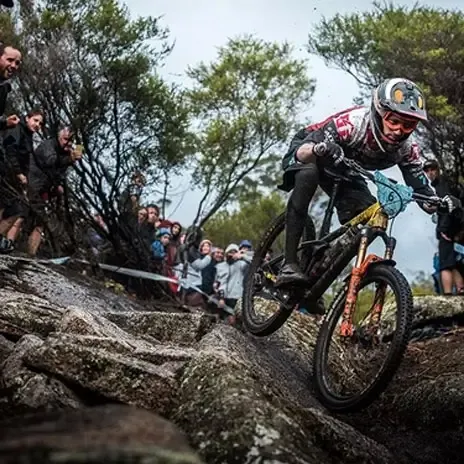
- Afrikaans
- Albanian
- Amharic
- Arabic
- Armenian
- Azerbaijani
- Basque
- Belarusian
- Bengali
- Bosnian
- Bulgarian
- Catalan
- Cebuano
- Corsican
- Croatian
- Czech
- Danish
- Dutch
- English
- Esperanto
- Estonian
- Finnish
- French
- Frisian
- Galician
- Georgian
- German
- Greek
- Gujarati
- Haitian Creole
- hausa
- hawaiian
- Hebrew
- Hindi
- Miao
- Hungarian
- Icelandic
- igbo
- Indonesian
- irish
- Italian
- Japanese
- Javanese
- Kannada
- kazakh
- Khmer
- Rwandese
- Korean
- Kurdish
- Kyrgyz
- Lao
- Latin
- Latvian
- Lithuanian
- Luxembourgish
- Macedonian
- Malgashi
- Malay
- Malayalam
- Maltese
- Maori
- Marathi
- Mongolian
- Myanmar
- Nepali
- Norwegian
- Norwegian
- Occitan
- Pashto
- Persian
- Polish
- Portuguese
- Punjabi
- Romanian
- Russian
- Samoan
- Scottish Gaelic
- Serbian
- Sesotho
- Shona
- Sindhi
- Sinhala
- Slovak
- Slovenian
- Somali
- Spanish
- Sundanese
- Swahili
- Swedish
- Tagalog
- Tajik
- Tamil
- Tatar
- Telugu
- Thai
- Turkish
- Turkmen
- Ukrainian
- Urdu
- Uighur
- Uzbek
- Vietnamese
- Welsh
- Bantu
- Yiddish
- Yoruba
- Zulu
Oct . 12, 2024 09:49 Back to list
how to fix a gear shifter on a mountain bike
Fixing a gear shifter on a mountain bike can seem daunting, but with a bit of patience and the right approach, you can tackle this common issue and get back to enjoying the trails. Gear shifting issues typically arise due to misalignment, dirt accumulation, or wear and tear. Here’s a step-by-step guide to help you troubleshoot and fix your mountain bike's gear shifter.
Step 1 Inspect the Shifter and Cables
Before diving into repairs, take a moment to visually inspect the gear shifter and the cables attached to it. Look for any visible damage, such as frayed cables or a broken shifter. If you notice either of these, you may need to replace the entire cable or shifter assembly. If everything looks intact, you can move on to adjusting and cleaning.
Step 2 Clean the Components
Dirt and grime can significantly impede the performance of your shifter. Using a clean cloth, wipe the shifter and surrounding areas. For stubborn dirt, a mild degreaser can be helpful. Make sure to also clean the derailleur (the component that moves the chain between gears). A clean drivetrain ensures that the shifter functions smoothly.
Step 3 Check and Adjust the Cable Tension
Proper cable tension is crucial for smooth shifting. To check this, shift to the smallest gear on the rear cassette. Inspect the rear derailleur; it should have just a slight amount of tension in the cable without being overly tight. If it’s too loose, tighten it using the barrel adjuster located near the shifter. If it's too tight, loosen the cable by adjusting the screw at the derailleur.
Step 4 Adjust the Limit Screws
how to fix a gear shifter on a mountain bike

Limit screws control how far the derailleur can move when shifting into the highest and lowest gears. Locate the two limit screws on the derailleur one for the highest gear (usually marked as H) and one for the lowest gear (marked as L). While shifting through the gears, if you notice that the chain is skipping or has difficulty moving to a particular gear, you may need to adjust these screws. Turning the H screw clockwise will restrict the derailleur's movement towards the higher gears, while the L screw does the same for lower gears.
Step 5 Test the Shifting
After making the necessary adjustments, it’s crucial to test the shifting function. Pedal your bike and shift through the gears, checking for any hesitation or skipping. If it’s not shifting smoothly, you may need to revisit the cable tension or limit screw adjustments.
Step 6 Regular Maintenance
To prevent future issues, make gear shifter maintenance a regular part of your bike care routine. This includes cleaning the components, checking for frays in the cables, and keeping the derailleur well-lubricated. Investing in a new set of cables and housing periodically can also contribute to smoother shifting.
Conclusion
Fixing a gear shifter on a mountain bike requires some basic tools and a little know-how, but it’s a manageable task. By inspecting, cleaning, adjusting, and regularly maintaining your gear shifter, you can ensure a smooth and enjoyable ride on your favorite trails. If you continue experiencing issues despite your efforts, it may be prudent to consult a professional bike mechanic. Happy cycling!
-
The Ultimate Kids' Four-Wheeler Experience
NewsJul.09,2025
-
The Ultimate Guide to Mountain Bikes: Gear Up for Your Ride
NewsJul.09,2025
-
The New Age of Cycling: Electric Bikes for Every Rider
NewsJul.09,2025
-
The Best Kids Bicycles: Ride in Style and Safety
NewsJul.09,2025
-
The Best 3-Wheel Scooters for Kids: Fun, Safety, and Adventure
NewsJul.09,2025
-
Revolutionize Your Ride: Affordable Electric Bikes
NewsJul.09,2025
-
Finding the Perfect Mountain Bike for Every Rider
NewsJul.09,2025



